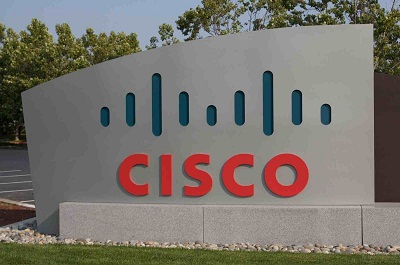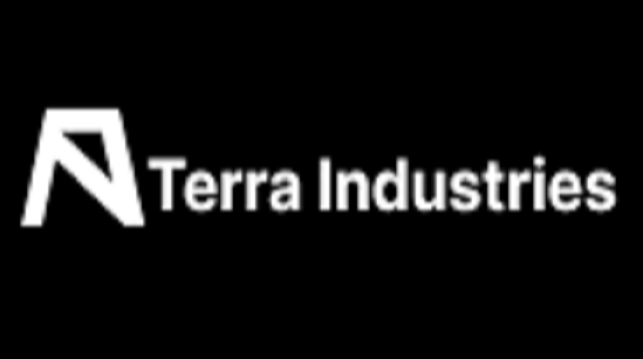E-Business
Cisco/NetApp Ranked High As Global Integrated Market Exceeds $1.3Bn

The worldwide integrated infrastructure & platforms market experienced an impressive 50.2% year-over-year factory value growth during the second calendar quarter of 2013 (2Q13), totaling $1.3 billion in system sales.
According to the International Data Corporation (IDC) Worldwide Quarterly Integrated Infrastructure & Platform Tracker, the market generated 529.6 petabytes of new storage capacity shipments during the quarter, which was up 60.5% compared to the second quarter of 2012.
IDC defines integrated infrastructure and platforms as pre-integrated, vendor-certified systems containing server hardware, disk storage systems, networking equipment, and basic element/systems management software. Systems not sold with all four of these components are not counted within this tracker.
Specific to management software, IDC includes embedded or integrated management and control software optimized for the auto discovery, provisioning and pooling of physical and virtual compute, storage and networking resources shipped as part of the core, standard integrated system.
Eric Sheppard, Research Director, Storage of IDC said: “IT departments around the world are increasingly turning to integrated systems to improve utilization rates of their infrastructure, reduce time to deployment of new applications, ease infrastructure management burdens, and reduce the risk of downtime.
“The wide-ranging benefits associated with integrated systems are helping to drive interest in the technology and ultimately very high market value growth rates.”
Also speaking, Jed Scaramella, research director, Enterprise Servers, “Integrated systems adoption is rapidly moving from evaluation to mainstream use, with customers increasingly deploying Tier 1 applications.
“Progressive companies view integrated systems as a means to optimize their IT environments so IT services can be better leveraged by their business units to increase workforce productivity, drive revenue opportunities, and connect with their customers.”
Integrated platform systems are integrated systems that are sold with additional pre-integrated packaged software and customized system engineering optimized to enable such functions as application development software, databases, testing, and integration tools. Since early iterations of this IDC Tracker will focus only on the core infrastructure of these systems, software is excluded from market sizing.
Sales of Integrated Platform Systems generated $539.4 million in sales during the quarter, which represented 21.1% year-over-year growth and 59.0% of the total market value. Oracle was the largest supplier of Integrated Platform Systems with $305.9 million in sales, or 56.7% share of the market segment.
Integrated infrastructure systems are designed for general-purpose, distributed workloads that are likely to have differing performance profiles.
While integrated infrastructure is similar to integrated platforms in that it will leverage the same infrastructure building blocks, it is not optimized for a specific workload.
Integrated infrastructure sales were up 80.3% year over year during the second quarter on $775.7 million worth of sales (41.0% of the total market value).
The Cisco and NetApp partnership that brings the FlexPod systems to market (referred to as Cisco/NetApp in the above table) generated $203.1 million worth of Integrated Infrastructure sales during the quarter, representing a 26.2% share and the top ranking within this market segment.
E-Business
Nigerian Terra Industries Secures $11.8m for Expansion

Terra Industries, a Nigerian defence technology startup, has raised $11.75 million to expand its development of defensive systems that protect critical facilities across Africa.

The fundraising round was led by Silicon Valley venture firm 8VC, which was founded by Palantir co-founder Joe Lonsdale.
Other investors in the round include Valour Equity Partners, Lux Capital, SV Angel, and Nova Global, as well as African-focused funds Tofino Capital, Kaleo Ventures, and DFS Lab.
Terra Industries, founded in Abuja by Nathan Nwachuku and Maxwell Maduka, provides multi-domain security solutions for both air and land. Its solutions are intended to detect and respond to threats including terrorism, sabotage, and armed attacks on infrastructure.
The company’s product portfolio includes surveillance drones, ground-based robotic systems, and fixed monitoring towers deployed around sensitive locations.
Co-founder and CEO Nathan Nwachuku said the company has now fully embraced its identity as a defence-focused startup, citing the growing urgency of security challenges across Africa.
He said safeguarding critical infrastructure from terrorist threats has become unavoidable.
Nwachuku argues that protecting Africa’s infrastructure requires a different approach, one that combines local manufacturing, end-to-end system control, and software capable of independently identifying and responding to threats over large areas.
The company aims to position itself as a defence prime, similar to the role played by firms such as Anduril Industries and Palantir in the United States.
Nwachuku also disclosed that the company had earlier raised $800,000 in pre-seed funding.
With the new funding, Terra plans to increase manufacturing capacity within Africa, establish additional defence production facilities, and expand its artificial intelligence and software teams.
While software offices are planned for San Francisco and London, the company said manufacturing operations will remain on the continent.
E-Business
Kaspersky Warns Telecom Threats from 2025 will Carry into 2026 as New Technology Adds New Risk

Kaspersky Security Bulletin reviews what shaped telecom cybersecurity in 2025 and what is likely to persist in 2026. Advanced Persistent Threat (APT) activity, supply-chain compromise, DDoS disruption and SIM-enabled fraud continued to pressure operators in 2025, while newer technology deployments introduce additional operational risk.

In 2025, telecom operators faced four broad threat categories. Targeted intrusions (APTs) continued to focus on gaining stealthy access to operator environments for long-term espionage and leverage through privileged network positioning.
Supply chain vulnerabilities remained an entry point: telecom ecosystems rely on many vendors, contractors and tightly integrated platforms, so weaknesses in widely used software and services can provide a path into operator networks. Finally, DDoS remained a practical availability and capacity problem.
Kaspersky Security Network showed that last year, between November 2024 and October 2025, 12,79% of users in the telecommunications sector encountered web threats and 20,76% faced on-device threats. 9,86% of telecom organisations worldwide experienced ransomware.
At the same time, the telecommunications sector is moving from rapid technological development to broad implementation — and the report argues that this shift creates new opportunities and new operational risks for 2026.
Kaspersky highlights three areas where technology transitions could introduce disruption if rolled out unevenly or without strong controls: AI-assisted network management, where automation can amplify configuration errors or act on misleading data; post-quantum cryptography transitions, where rushed deployment of hybrid and post-quantum approaches could cause interoperability and performance issues across IT, management and interconnect environments; and 5G-to-satellite integration (NTN), where expanding service footprints and partner dependencies introduce new integration points and potential failure modes.
“The threats that dominated 2025 — APT campaigns, supply chain attacks, DDoS floods — aren’t going away. But now they intersect with operational risks from AI automation, quantum-ready cryptography, and satellite integration.
Telecom operators need visibility across both dimensions: maintaining strong defences against known threats while building security into these new technologies from day one. The key is continuous threat intelligence that spans from endpoint to edge to orbit,” said Leonid Bezvershenko, senior security researcher at Kaspersky Global Research & Analysis Team.
E-Business
Study Reveals 88.5% of Phishing Attacks Focus on Stealing Account Credentials

Kaspersky analysed phishing and scam campaigns observed from January through September 2025 and found that 88.5% of attacks globally sought credentials for various online accounts.

Another 9.5% targeted personal data such as names, addresses, and dates of birth, while 2% focused on bank card details.
According to data from Kaspersky, over 38 million phishing links were clicked in Africa in the previous year (from November 2024 to October 2025) – all of which were detected and blocked by Kaspersky solutions.
Not everyone uses protective solutions on their devices however, and phishing remains one of the most prevalent cyber threats, with attackers luring users to fake websites where they unwittingly surrender their login credentials, personal information, or bank card details.
Kaspersky research shows that most phishing pages transmit stolen information via email, Telegram bots, or attacker-controlled panels, before it enters underground resale channels.
Data stolen through phishing is rarely used only once: credentials from multiple campaigns are consolidated into data dumps and sold on dark web markets, in some cases for as little as $50. Buyers sort and verify the data to check whether accounts remain active and reusable across different services.
According to Kaspersky Digital Footprint Intelligence, average 2025 prices ranged from $0.90 for global Internet portals to $105 for crypto platforms and $350 for online banking access. Personal documents such as passports or ID cards sold for about $15 on average, with pricing influenced by account age, balance, linked payment methods, and security settings.
As datasets are enriched and combined, attackers can build detailed digital profiles that may later support targeted attacks on executives, finance staff, IT-administrators or individuals with valuable assets or personal documents.
“Our analysis shows that credentials account for nearly 90% of phishing attempts. Once collected, logins, passwords, phone numbers, and personal details are aggregated, checked, and resold, sometimes years after the initial theft.
Combined with new information, even old credentials can enable account takeovers and targeted attacks against both individuals and organisations.
By leveraging open-source intelligence and old breach data, attackers can craft highly personalised scams, turning one-time victims into long-term targets for identity theft, blackmail, or financial fraud,” said Olga Altukhova, senior web content analyst at Kaspersky.

 News3 days ago
News3 days agoSERAP Sues INEC Over Alleged ₦55.9Bn Election Funds Diversion

 General News3 days ago
General News3 days agoMinistry of Finance Leads FG-Backed Deal to Deliver Quality Homes and Boost Agriculture in Niger State

 E-Financial3 days ago
E-Financial3 days agoNDIC Declares Second Liquidation Dividend for Heritage Bank Depositors

 Telecom3 days ago
Telecom3 days agoFG Plans to Invest $460m World Bank Loan in Fibre Infrastructure

 News3 days ago
News3 days agoAI Founders and Developers to Converge in Lagos for AI in Action 2026 conference

 News3 days ago
News3 days agoFG Inaugurates N40Bn CCTV Control Centre for Third Mainland Bridge

 E-Financial2 days ago
E-Financial2 days agoWema Bank Upgrades ALAT Banking App

 Telecom2 days ago
Telecom2 days agoX Suspends Twitter Account for Rules Violation



























